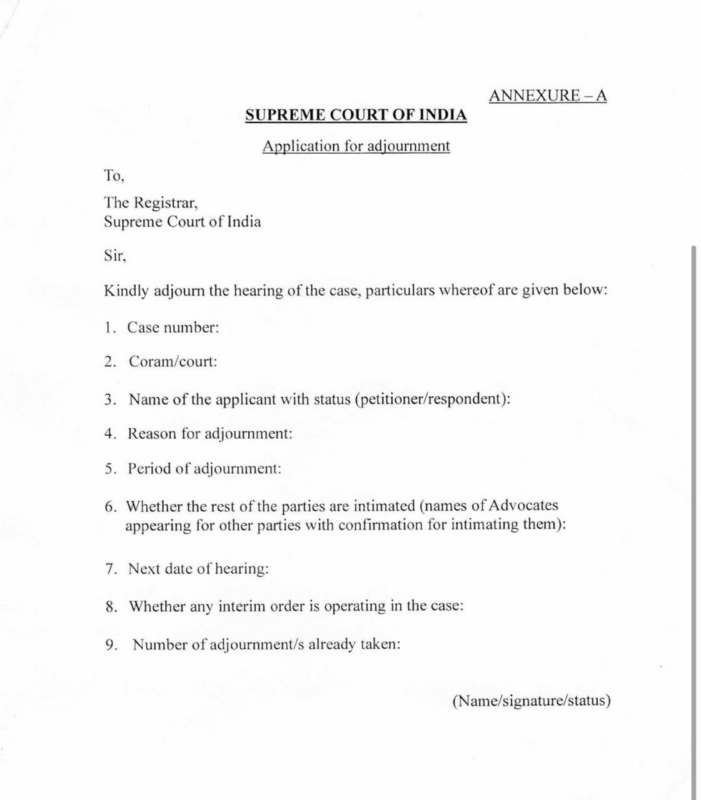In a significant procedural update, the Supreme Court of India has reinstated and formalized the process for circulation of letters seeking adjournments in court cases. The decision, announced via a circular dated 17 May 2025, modifies an earlier directive issued on 14 February 2024, and comes after persistent requests from members of the Bar, particularly the Supreme Court Advocates-on-Record Association (SCAORA).

The Office of the Registrar (Judicial) has outlined a clear protocol to be followed by parties-in-person and Advocates-on-Record (AoRs) for submitting such requests. As per the new circular, letters for adjournment are now permitted to be circulated in all cases—except those with fixed dates or specific mentions—until 11:00 a.m. on the working day preceding the hearing.

However, these letters will be entertained only upon obtaining prior consent or no-objection from the opposing counsel or caveator. “Unless such prior consent/no objection of the Advocates/Parties-in-Person appearing on the other side/Caveator is obtained, the same would not be considered,” the circular cautioned.
Valid Grounds and Procedural Requirements
The Supreme Court emphasized that adjournment requests must include a specific reason and disclose the number of adjournments previously sought. Valid grounds for adjournment include bereavement in the family, medical or health-related issues of the advocate or party-in-person, or any other “genuine reason” deemed satisfactory by the court.
All such requests must be submitted in the prescribed format detailed in Annexure A, which includes fields for case details, reason for adjournment, period requested, consent confirmation from other parties, and current status of interim orders, among others. The application must be emailed to adjournment.letter@sci.nic.in.
Administrative Action and Transparency
The Registrar’s Office has directed that five spare copies of the circular be circulated to the Supreme Court Bar Association and the SCAORA with requests to display them on their respective notice boards. The notice has also been shared with all concerned court departments and boards to ensure full transparency and awareness.
This procedural flexibility is seen as a move to balance judicial efficiency with human contingencies, offering much-needed relief to litigants and legal practitioners while ensuring accountability and fairness.
Key Highlights of the Circular:
- Adjournment letters permitted up to 11:00 a.m. of the preceding working day (except fixed/mentioned matters).
- Prior consent from the opposite party is mandatory.
- Only genuine reasons (e.g., bereavement, medical emergencies) accepted.
- Requests to be submitted via email using format in Annexure A.
- Circular welcomed by legal fraternity, especially SCAORA.
This update is expected to streamline courtroom proceedings while upholding procedural integrity and equitable access for all parties involved.




